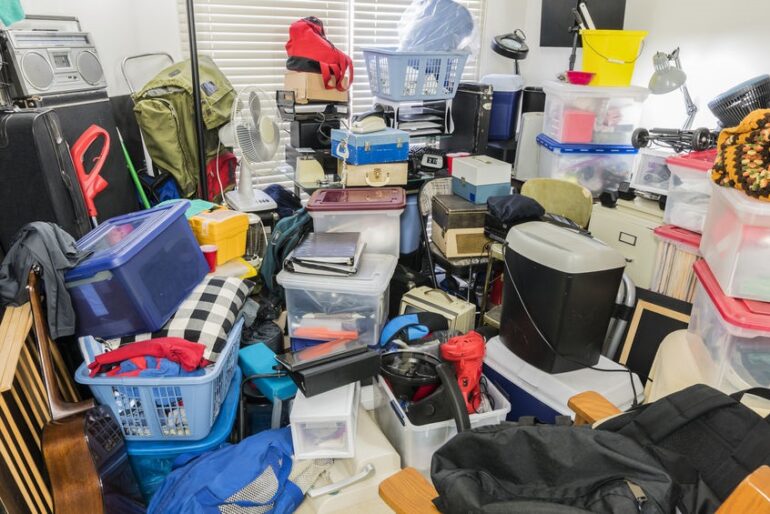
The COVID-19 pandemic has brought disruption and stress to billions of people around the globe. With so much uncertainty, many people are voluntarily spending most of their time at home. Living in a cluttered home, however, can increase anxiety and stress because it makes people feel like they have even less control over their lives and environment. Starting to clear out clutter can have just the opposite effect. And given the current pandemic, there’s never been a better time to do so with people spending so much more time at home.
How Living in a Cluttered Home Affects Mental Health
Clutter can cause the senses of sight, smell, and touch to become overstimulated and pull attention away from more important matters. Relaxing at home can be impossible to do because a person’s brain receives signals that work is never-ending. People can then feel paralyzed by fear and inaction because they focus on the problem rather than thinking of step-by-step ways to resolve it. The best way to overcome that type of negativity is for people to commit to de-cluttering one room at a time regardless of how they feel.
Clear Out Clutter in the Home’s Entryway First
Walking into the home only to see a cluttered entryway can make people feel discouraged and like they lack the energy to organize. Starting with the entryway can provide an important psychological benefit and provide motivation to de-clutter the rest of the home one room at a time. These suggestions can transform even the most disorganized entryway into an area where everything is easy to find:
- Store seasonal items no one is currently wearing in a nearby closet.
- Place a bench or basket near the front door to place packages, mail, and work and school papers to prevent them from becoming scattered all over the house.
- Donate or recycle unused clothing or household items as much as possible.
- Don’t neglect the garage, as a proper garage clean-up can help maintain home organization long-term
People might feel surprised at how much more energy they have to declutter other rooms once the entryway is complete. The experience and satisfaction of walking into a clean and organized front entryway. The extra time at home is also a good time to discard of expired cleaning supplies, medications, and food. Create a plan to work on one room each day. This is a simple goal that can bring a deep sense of accomplishment and help to reduce anxiety.
A Cluttered Home Can Increase COVID-19 Risk
The more clutter present in a home, the easier it is for highly contagious COVID-19 germs to remain on surfaces. Excessive clutter can also make it more difficult to clean and sanitize countertops and other high-touch areas properly. This is especially dangerous for the elderly or those a significant underlying health conditions in the home.
Diabetes, heart disease, kidney disease, lung disease, and health conditions that compromise the immune system increase COVID-19 risk. It is an act of love and kindness to keep the home clean and clutter-free. Consequently, it minimizes the risk of infection for yourself and others.
Ultimately, there’s never been a better time to clear out clutter than now. For your mental health, your home’s organization, and even your physical health, don’t delay on this project another day!

